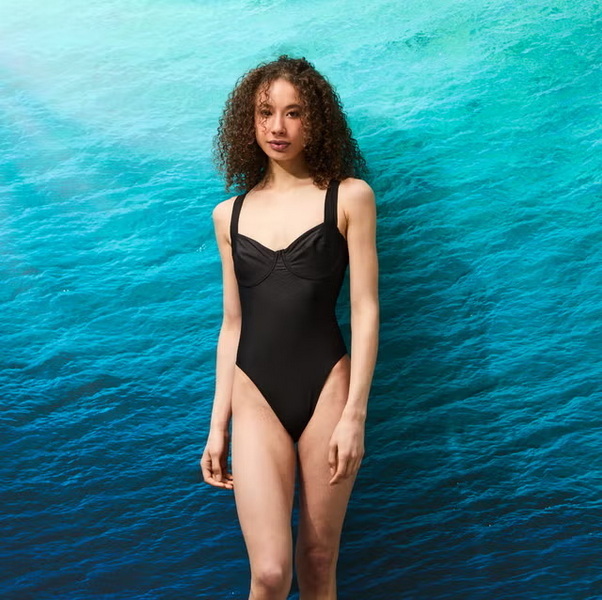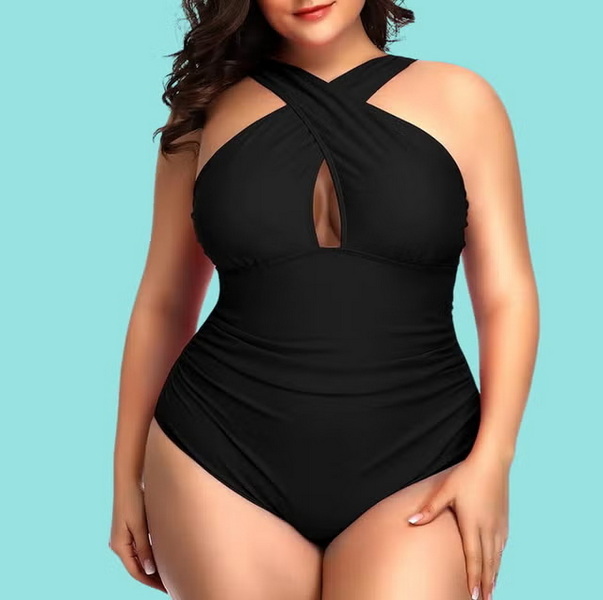Views: 222 Author: Panda Publish Time: 2025-07-17 Origin: Site








Content Menu
● The Evolution of Women's Swimwear
● Comfort and Functionality of Female Skin-Tight Swimsuits
>> Enhanced Muscle Performance
>> Accentuating the Body's Natural Shape
>> Versatility Beyond the Pool
● Technology in Female Skin-Tight Swimsuits
● Health, Comfort, and Sun Protection
● Influences Shaping the Trend
● Environmental and Practical Benefits
● Female Skin-Tight Swimsuit Trends for 2025
>> Key Styles
>> Popular Cuts
● Styling Tips for Female Skin-Tight Swimsuits
● Related Questions and Answers
>> 1. What are the main benefits of wearing a female skin-tight swimsuit?
>> 2. Are female skin-tight swimsuits suitable for all body types?
>> 3. How should you care for a female skin-tight swimsuit?
>> 4. Can a female skin-tight swimsuit provide sun protection?
>> 5. What's the difference between a fashion female skin-tight swimsuit and a competitive one?
In recent years, there has been a noticeable shift in women's swimwear preferences, with the female skin-tight swimsuit growing in popularity across the globe. Once reserved for professional athletes and swimmers, these sleek and streamlined garments now command attention at beaches, pools, and holiday destinations. This article explores the multifaceted reasons behind the rising popularity of female skin-tight swimsuits, incorporating fashion trends, practicality, body positivity, and cutting-edge technology.

The journey of women's swimwear is a reflection of broader social and cultural changes. Decades ago, swimsuits were exclusively designed for modesty and coverage. Fabric choices were limited, colors were subdued, and designs were often bulky. Over time, fabric technology and evolving attitudes about body image led to the gradual reduction of excess material, ushering in bolder styles. The 21st century has seen the emergence of the female skin-tight swimsuit as a celebrated choice—not just for athletes, but for recreational swimmers and style-conscious consumers alike.
Women wanted more than just functionality—they desired pieces that made them feel confident and connected to their bodies. The skin-tight design became a natural evolution that combined practicality with fashion-forward aesthetics. As society became more open to expressing individuality and empowerment, the female skin-tight swimsuit became a wardrobe staple.
One of the primary functional benefits of a female skin-tight swimsuit is its ability to streamline the swimmer's figure. The snug fit encases the body completely, reducing drag caused by loose fabric flapping in water. This leads to smoother, more efficient movement, allowing for a better swimming experience. It's no surprise that professional swimmers have long preferred skin-tight suits for training and competition.
What many may not realize is that even casual swimmers and beachgoers can enjoy benefits from wearing a quality female skin-tight swimsuit. The reduced resistance means less effort when moving through water, translating into longer, more enjoyable swims without fatigue.
Another critical factor is the sense of support that comes with a skin-tight swimsuit. Because these swimsuits hug the body firmly, they provide a natural compression effect which can be both comfortable and reassuring, especially during active water sports. Unlike loose-fitting suits that risk shifting or becoming untied, female skin-tight swimsuits stay put through movement, waves, and sport activities such as surfing or beach volleyball.
For many women, this added security helps reduce anxiety about swimsuit malfunctions and allows them to focus entirely on their performance or enjoyment of the water.
In recent decades, sportswear technology has made leaps and bounds. Many female skin-tight swimsuits now feature fabrics engineered to enhance performance by supporting muscles and reducing vibrations. This “compression technology” works much like compression socks or sleeves in other sports, promoting better blood flow and muscle efficiency.
Though many wearers appreciate this feature purely for comfort and fatigue reduction, competitive swimmers and athletes use it to gain an edge in endurance and speed. The materials used in female skin-tight swimsuits are often lightweight, breathable, and highly stretchable, ensuring no restriction of movement while still conferring those physical benefits.
Beyond practical benefits, female skin-tight swimsuits have become a tool for self-expression and body confidence. The design emphasizes the natural contours and curves of the female body, helping women feel more connected with themselves. Wearing a swimsuit that fits perfectly can transform the swimming experience from a mere activity into a celebration of one's own physicality and identity.
Many brands now recognize the importance of inclusivity in swimwear, offering a wide range of sizes, cuts, and fabrics designed to flatter every figure. Whether it's a high-neck sporty style, a minimalist bikini, or a vintage-inspired one-piece, the female skin-tight swimsuit promotes a healthy body image and self-esteem.
The fashion industry has embraced the female skin-tight swimsuit with enthusiasm. Designers continuously reinvent this core swimwear piece by introducing bold new prints, eye-catching cut-outs, and fusion fabrics that mix matte and shiny finishes. Influencers and celebrities frequently showcase their favorite female skin-tight swimsuits on social media platforms, creating a ripple effect that encourages followers to adopt this look.
The widespread availability of vibrant and diverse designs invites women to choose suits that align with their personal tastes, from understated elegance to flashy and colorful patterns.
Another reason for the surge in skin-tight swimsuit popularity is versatility. Many female skin-tight swimsuits are now styled to double as bodysuits, capable of being paired with skirts, shorts, or pants. This blurs the line between swimwear and everyday fashion, stretching the usefulness of the garment beyond the beach or poolside.
This multifunctionality appeals to women who want to maximize the value of their wardrobe pieces while making effortless style statements. It also supports an active lifestyle, allowing quick transitions from swimming to other daily activities without the need for a full outfit change.
The materials used to create female skin-tight swimsuits have seen remarkable progression, blending science and fashion. Modern swimwear often combines synthetic fibers such as nylon, spandex, and polyester with innovative coatings that repel water and resist chlorine degradation. This results in suits that fit like a second skin, dry rapidly, and maintain color vibrancy over time.
These technological advancements ensure that female skin-tight swimsuits remain comfortable, durable, and aesthetically pleasing after repeated use—qualities highly valued among both casual and competitive swimmers.
Professional swimwear has pioneered many technology breakthroughs—such as welded seams that reduce irritation and specifically engineered compression panels that support key muscle groups. These features have trickled down into everyday female skin-tight swimsuits, providing average users with benefits once exclusive to athletes.
Additionally, some high-end female skin-tight swimsuits include water-repellent finishes that prevent suits from becoming heavy when wet and reduce the effort needed to move in water.

Female skin-tight swimsuits play a role in protecting the wearer's skin. Their tight fit limits direct exposure to pool chemicals such as chlorine, which can cause irritation in sensitive individuals. Furthermore, many contemporary swimsuits are made with UPF (Ultraviolet Protection Factor) fabrics, offering significant defense against sun exposure.
This integration of protection and swimwear reduces the need for excessive sunscreen application on covered areas and promotes safer habits for those who enjoy prolonged outdoor water activities.
The psychological benefits of wearing a suit that fits well and accentuates natural beauty shouldn't be underestimated. A well-fitted female skin-tight swimsuit can boost self-esteem, promote body acceptance, and encourage women to engage more confidently in physical activity. Feeling secure and beautiful in swimwear often translates into a more active and fulfilling lifestyle.
The global rise in women participating in water sports and fitness activities has greatly influenced swimwear trends. The female skin-tight swimsuit perfectly syncs with this more athletic, health-conscious approach. Many women desire swimwear that looks and performs like sportswear, blending fashion with function seamlessly.
The athleisure movement, merging activewear with casual wear, further inspires designs that look great in and out of the water. As exercise becomes a lifestyle, swimwear codifies this new, active femininity.
Social media channels and celebrity endorsements play a crucial role in popularizing female skin-tight swimsuits. With thousands of posts tagged daily, these platforms showcase how women of all backgrounds use skin-tight swimsuits to express themselves confidently in daylight, nightlife, or competitive arenas.
The exposure breaks down old swimwear stereotypes, encouraging broader acceptance and enthusiasm for this form-fitting style among a diverse customer base.
The swimsuit industry has responded to growing environmental concerns by developing female skin-tight swimsuits made from recycled materials, including reclaimed ocean plastics. These eco-friendly options appeal to conscious consumers who want to reduce waste without sacrificing style or performance.
Sustainability also influences production methods, encouraging factories to adopt lower-impact manufacturing techniques, which benefits the planet and enhances brand reputation.
Due to their high-performance fabrics and meticulous construction, female skin-tight swimsuits tend to have longer lifespans compared to traditional swimwear. Their resistance to fading, stretching, and wear means fewer replacements are necessary, translating into a more sustainable consumer behavior.
The trends for female skin-tight swimsuits in 2025 reflect a dynamic mix of innovation and nostalgia:
- Sporty Trims: Bold color blocking and geometric patterns emphasize movement and strength.
- Floral Patterns: Soft and lively prints offering a romantic, feminine touch.
- Metallic and Glossy Finishes: Shiny surfaces create a futuristic allure observed on runways.
- Retro Inspired: High-cut legs and thick straps reminiscent of 1980s swim fashion.
- Logo Mania: Prominent branding and embroidery signal designer status and personality.
- High-neck and Zip-front Designs: Combining modesty and sporty appeal.
- Asymmetrical One-shoulder Styles: Creating eye-catching silhouettes.
- Ultra-high Leg Openings: Elongating the legs and emphasizing physique.
- Cut-out Panels for Added Flair: Blending coverage with allure.
- Layer with lightweight kaftans or sarongs for beach-to-street adaptability.
- Select swimsuits with built-in UV protection for all-day sun safety.
- Accessorize with sporty sunglasses, visors, or slide sandals for a casual chic look.
- Mix prints and textures to reflect your mood and personality with confidence.
The growing popularity of female skin-tight swimsuits is driven by a blend of fashion innovation, athletic performance, and cultural trends. These swimsuits empower women to embrace their bodies, enjoy the water with confidence, and express their personal style. With advances in technology and inclusive design, female skin-tight swimsuits are well poised to remain at the forefront of swimwear fashion for years to come. As both a functional garment and a statement piece, they offer unparalleled benefits that resonate with a wide spectrum of women, fueling an ongoing global trend.

Female skin-tight swimsuits offer streamlined movement in water, superior support, muscle compression, and improved body confidence. Their snug fit also reduces drag and stays in place during activity, enhancing comfort and performance.
Yes, modern designs are inclusive, offering a variety of cuts and fabrics that flatter every body shape while providing comfort and security. Custom sizes and adjustable elements increase accessibility.
Rinse in cool water after use, avoid wringing, let it air dry, and keep it out of direct sunlight. Use gentle detergent and never bleach or iron these fabrics to maintain their elasticity and color.
Many brands now incorporate UPF-rated materials into their swimsuits, offering significant protection from harmful UV rays, making them an excellent choice for sun safety during extended outdoor activities.
Competitive suits focus on maximum hydrodynamics, compression, and technical construction, while fashion versions prioritize aesthetics, comfort, and trend-driven design. They might differ in materials, seam construction, and durability for prolonged water exposure.
